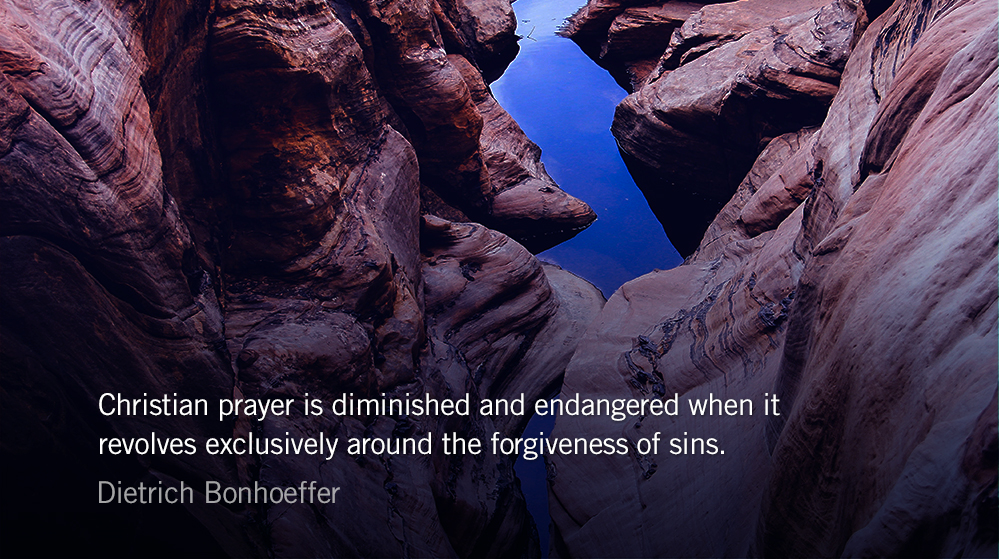It is certain that one can speak of one’s own innocence in a self-righteous manner, but do we not realize that one can also pray the most humble confession of sin very self-righteously?
―Dietrich Bonhoeffer
Scripture: Psalm 69.13
But as for me, my prayer is to you, O Lord. At an acceptable time, O God, in the abundance of your steadfast love answer me in your saving faithfulness.
Reflection: Guilt and Forgiveness
By Dietrich Bonhoeffer (1906-1945)
There are fewer prayers for the forgiveness of sins in the Psalter than we expect. Most psalms presuppose complete certainty of the forgiveness of sins. That may surprise us. But even in the New Testament the same thing is true. Christian prayer is diminished and endangered when it revolves exclusively around the forgiveness of sins. There is such a thing as confidently leaving sin behind for the sake of Jesus Christ.
Christians have something to say not only about their guilt, but also something equally important about their innocence and righteousness. To have faith as a Christian means that, through the grace of God and the merit of Jesus Christ, the Christian has become entirely innocent and righteous in God’s eyes—that “there is therefore now no condemnation for those who are in Christ Jesus.” And to pray as a Christian means to hold fast to this innocence and righteousness in which Christians share, and for which they appeal to God’s Word and give God thanks.
Alongside objective innocence, which can of course never be really objective because the fact of the grace of God likewise always meets us personally, there can then stand in such a psalm the personal confession of guilt. This is again only a sign that I really embrace God’s cause. I can then ask even in the same breath: “Vindicate me, O God, and defend my cause against an ungodly people.”
It is a thoroughly unbiblical and destructive idea that we can never suffer innocently as long as some kind of fault still remains in us. Neither the Old nor the New Testament makes such a judgment. If we are persecuted for the sake of God’s cause, then we suffer innocently, and that means we suffer with God. That we really are with God and, therefore, really innocent is demonstrated precisely in this, that we pray for the forgiveness of our sins.
But we are innocent not only in relation to the enemies of God, but also before God, for we are now seen united with God’s cause, into which it is precisely God who has drawn us, and God forgives us our sins.
*Excerpt from Prayerbook of the Bible by Dietrich Bonhoeffer.
Prayer: The Refrain for the Morning Lessons
How sweet are your words to my taste! they are sweeter than honey to my mouth. —Psalm 119.103
– From The Divine Hours: Prayers for Springtime by Phyllis Tickle.
Full prayer available online and in print.
Today’s Readings
Numbers 26 (Listen – 7:47)
Psalm 69 (Listen – 4:04)






